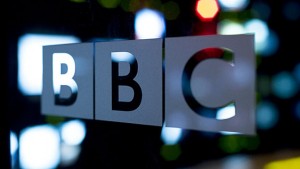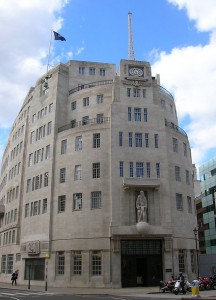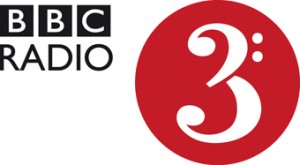A day at the BBC
 BA Postdoctoral Fellow Dr Kate Guthrie talks about her recent experience at the New Generation Thinkers 2015 Finalists’ Workshop: One of the major challenges facing academics today is to work out how their research can impact the world. In part, this matters because impact is now one of the criteria on which universities are assessed – and in my opinion rightly so. It makes sense that state-funded institutions should be accountable for their public benefit. But for me, the idea of impact is also compelling because I genuinely find my research fascinating, and so I hope and believe that other people might too.
BA Postdoctoral Fellow Dr Kate Guthrie talks about her recent experience at the New Generation Thinkers 2015 Finalists’ Workshop: One of the major challenges facing academics today is to work out how their research can impact the world. In part, this matters because impact is now one of the criteria on which universities are assessed – and in my opinion rightly so. It makes sense that state-funded institutions should be accountable for their public benefit. But for me, the idea of impact is also compelling because I genuinely find my research fascinating, and so I hope and believe that other people might too.
It was with this aspiration in mind that, a few months back, I decided to put in an application for New Generation Thinkers 2015. This scheme is a joint venture between the Arts and Humanities Research Council and BBC Radio 3. It is designed to help early career academics link up with BBC producers for mutual benefit.
I have to confess that I completed in the application form in rather a hurry. It was one of those busy points in the run-up to Christmas when there was rather too much else going. So I was very surprised when an email arrived in my inbox in early February informing me that I’d been shortlisted and inviting me to a Finalists’ Workshop at the BBC.

On the day of the workshop, I set off early to allow ample time for getting lost (which I did – twice). It was a relief when I finally spotted the unimposing brass plaque announcing the home of “The British Broadcasting Corporation.” Once the initial excitement of having arrived at Old Broadcasting House had passed, I was intrigued to discover how broad a range of people had applied to the scheme. In terms of career stage, there were current PhD students, well-established lecturers, and everything in between; in terms of disciplinary backgrounds, we represented a variety of topics from stone-age archeology and medieval manuscripts to Victorian literature and twentieth-century music. What united us was a common desire to make our research more accessible.
With this in mind, one of the main aims of the workshop was to help us think about what makes a good radio or television broadcast. During the morning, we spent some time analyzing television clips and excerpts from radio programmes to discuss what worked and what didn’t. This was an interesting exercise, not least because I usually watch television or listen to radio to switch off, rather than to turn on, my critical faculties. What struck me was just how personal media is: by no means did we all agree on which techniques were the most successful. Being able to engage with a broad audience is a real skill.
 After lunch, we had the chance to pitch a programme in the style of Radio 3’s The Essay to some BBC producers. In case you’ve never listened to this show, it’s broadcast at 22:45 on weeknights. Guest presenters are invited to read out a short scripted essay on the topic of the week – recent themes have included ‘The Book that Changed Me’, ‘Classical Music’s Unsung Heroines’, and ‘Minds at War’.
After lunch, we had the chance to pitch a programme in the style of Radio 3’s The Essay to some BBC producers. In case you’ve never listened to this show, it’s broadcast at 22:45 on weeknights. Guest presenters are invited to read out a short scripted essay on the topic of the week – recent themes have included ‘The Book that Changed Me’, ‘Classical Music’s Unsung Heroines’, and ‘Minds at War’.
In keeping with the programme’s style, we’d been instructed to prepare a 2 ½ minute script to read out. Writing this sort of text was a completely new experience that required me to think about my research from a different perspective. First, I had to work out how to distill months of archival work, secondary literature and thinking into a few hundred words, but without loosing any of the complexity or depth. I also had to think about how to draw in listeners who know nothing or very little about my period or topic. This forced me to reflect on how the stories I dredge up from the past might speak to or resonate with the present.
The day ended with a “tag team” debate, where we had to switch between arguing for and against the motion “should life be lived in the fast or the slow lane?” Whereas the greatest challenge of the previous activity had been to distill without dumbing-down, the debate was all about quick-fire responses and thinking on your feet. With a BBC presenter in the chair and a camerawoman filming, this had all the pressure of a discussion going out live on-air. The adrenalin in the room was palpable!
By 6pm, I was exhausted after an intense, but fun day. What had I learnt? One thing was that life moves much faster in the media than in academia. It can take years to research an article, whereas programmes are produced in a matter of weeks, or even days. Perhaps more importantly, the workshop brought home to me just how vital it is to know your audience. Late-night Radio 3 listeners are likely to have different expectations from those who tune in mid-afternoon to Radio 4. I realized that being a good communicator is less about what one says than how one says it: the same story can be told in different ways. I feel sure that reflecting on this will help me to work out how my research can make a meaningful impact on the world.

